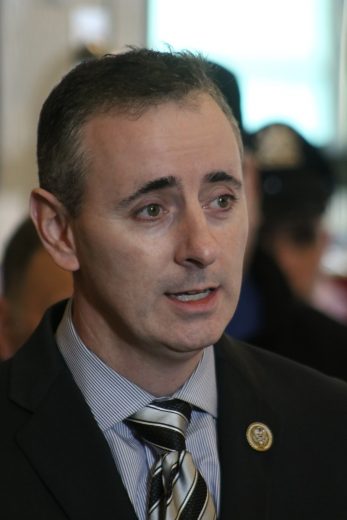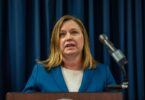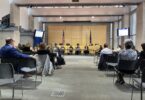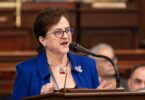By John L. Micek | Pennsylvania Capital-Star
With the U.S. Supreme Court ruling on President Joe Biden’s student loan forgiveness plan expected any day now, a Pennsylvania Republican has crossed the aisle to work with Democrats on Capitol Hill on a plan to allow student borrowers to refinance their loans while remaining public borrowers.
The ‘Student Loan Refinancing Act,’ being advanced by Congressman Brian Fitzpatrck; Congressman Mike Turner, a Republican from Ohio; Congressman Donald Norcross, a Democrat from New Jersey; and Congressman Lloyd Doggett, a Democrat from Texas, would amend the Higher Education Act of 1965 to create the new pathway, the lawmakers said in a joint statement.
“Our nation’s student loan crisis is unsustainable and should not be a partisan issue in Congress,” Fitzpatrick said.
“The commonsense, common-ground legislation we are introducing today would give borrowers the ability to refinance their loans at lower interest rates,” the Bucks County Republican continued. “I am grateful to partner with my colleagues on both sides of the aisle on the Student Loan Refinancing Act to ensure that American families and borrowers have more flexibility as they work to pay back their loans.”
The bill is one of several legislative remedies making the rounds of Capitol Hill as the nation waits for a ruling from the high court.
All told, 1.15 million Pennsylvanians were approved for the White House’s student loan forgiveness plan, 743,000 of whom saw their applications approved and sent to loan-servicers, according to Biden administration data.
The long-awaited plan, officially announced last year, forgives $20,000 in student debt for Pell Grant recipients and $10,000 for borrowers earning $125,000 or less annually, the Capital-Star reported at the time.
The initiative has been on hold while the U.S. Supreme Court makes up its mind.
Meanwhile, the need for relief remains palpable among borrowers in the Keystone State and beyond.
Nearly two-thirds (64 percent) of Pennsylvania college graduates had student loan debt in 2019-20. That means the commonwealth ranks among the highest in the nation for most debt, according to the Institute for College Access and Success, a national organization that advocates for accessible and affordable education, the Capital-Star’s Marley Parish reported last year.
The average debt load of a Pennsylvania college graduate during the same timeframe was $39,375. In Pennsylvania, 22 percent of college graduates had private student loan debt, with an average total of $42,361, Parish reported.
In that joint statement, Turner acknowledged the financial hardships facing millions of borrowers.
“The student debt crisis in this country continues to worsen, and it is time for Congress to provide common-sense, reliable solutions to this problem,” Turner said.
“Individuals should be able to keep their loans within the federal system while also taking advantage of lowered federal interest rates,” Turner continued. “This bipartisan legislation provides flexibility for borrowers by creating a mechanism to refinance their public student loans to a given year’s interest rates, thus easing the burden of student loans on federal borrowers.”
With the end of the federal COVID-19 health emergency, the Biden administration has signaled that the years-long freeze on student loan payments also will come to an end.
Those payments will resume later this year, U.S. Education Secretary Miguel Cardona said in May, according to The Hill.
“The emergency period is over, and we’re preparing our borrowers to restart,” Cardona said during a Senate Appropriations hearing, according to The Hill.
The political sparring over Biden’s loan plan has continued unabated on Capitol Hill. Last week, the president vetoed a Republican-backed effort to overturn the program.
In their statement, the bipartisan band of lawmakers stressed the need to seek a longer-term solution to the student loan crisis.
“Everyone should have access to an affordable education that does not leave them with crushing debt,”Norcross said.
Dogget amplified those remarks, adding that “Congress must do more to deliver relief. It’s unacceptable that a borrower seeking to refinance their federal loans must convert to private loans and potentially jeopardize their income-driven repayment plans and other assistance.“









